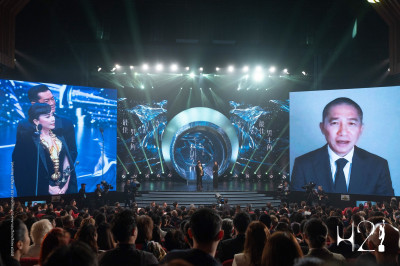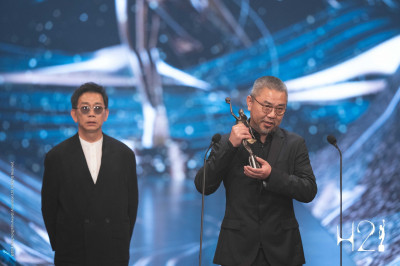《TAIPEI TIMES》Ministry freezes limits on device costs

Minister of Health and Welfare Chen Shih-chung, left, and National Health Insurance Administration Director-General Lee Po-chang leave a meeting in Taipei on Saturday. Photo: CNA
MANY VOICES: Critics of the policy to limit medical device costs said it would block new devices from entering the market and limit development of domestic devices
By Lee I-chia / Staff Reporter
The Ministry of Health and Welfare on Saturday said it is postponing a National Health Insurance Administration (NHIA) policy that would set a maximum price for out-of-pocket copayments for eight types of common medical devices, which was originally to start on Aug. 1.
Minister of Health and Welfare Chen Shih-chung (陳時中) announced the postponement after meeting earlier that afternoon with more than 40 representatives of various groups, including the Taiwan Medical Alliance for Labor Justice and Patient Safety, Taiwan National University Hospital, Taipei Veterans General Hospital, the Taiwan Hospital Association, the Consumers’ Foundation, and the Taiwan Alliance of Patients’ Organizations.
In addition to agreeing to postpone the policy, they agreed on two other points, the ministry said.
The first point concerned international pricing and addressing special devices that they considered unreasonably priced.
The ministry said the NHIA would refine the categories of medical devices based on their functions.
The second point concerned improving the transparency of medical device information and doctor-patient communication, by launching a platform to help patients easily understand and choose the devices they need.
As National Health Insurance covers only the basic model of the eight types of medical devices, patients must pay the difference if they choose those that are made of special materials or have special functions, and the policy planned on setting a ceiling for the out-of-pocket copayments, covering 352 products.
The eight types are: pacemakers, intraocular lenses, cardiac valves, drug-eluting coronary artery stents, drug-eluting stents used in superficial femoral artery treatment, ablation catheters for treatment of complicated cardiac arrhythmia, artificial hip joints and programmable valve systems.
Former Democratic Progressive Party legislator Lin Ching-yi (林靜儀), a gynecologist and obstetrician, was one of the first public figures to speak out against the policy since it was first announced on Tuesday last week.
She said that the policy was designed to limit the maximum price of legal medical devices to prevent professional physicians from “earning too much,” while not doing enough to punish companies that sell “nutritional supplements” that have implied medical benefits, but lack any scientific evidence that they do.
Lin said the policy did not consider the differences among hospitals’ bargaining power or the medical skills that healthcare professionals can offer, and that it would block new expensive devices of higher quality from entering the market, as well as hinder domestic medical device development.
Several medical associations, doctors’ unions, politicians and healthcare professionals — including the Taiwan Society of Cardiology, the Taipei Doctors’ Union and an online petition with thousands of signatures from healthcare professionals — also expressed concerns over the policy.
However, other groups, including the Consumers’ Foundation and the National Health Insurance Civic Surveillance Alliance, have said they support the policy.
Chen said that the NHIA would review controversial cases and patients’ complaints to better understand their issues, launch a more user-friendly online information disclosure platform and hold another meeting in two months to discuss the issue.
Lin said she praised Chen’s willingness to communicate with different groups, allowing different opinions to be heard and discussed.
She also praised him for saying that doctor-patient relations should be improved to create a friendlier healthcare environment, she said.
Consumers’ Foundation secretary-general Wu Jung-ta (吳榮達) said that the policy should not be postponed forever and should be implemented before the end of the year.
Additional reporting by CNA
新聞來源:TAIPEI TIMES












